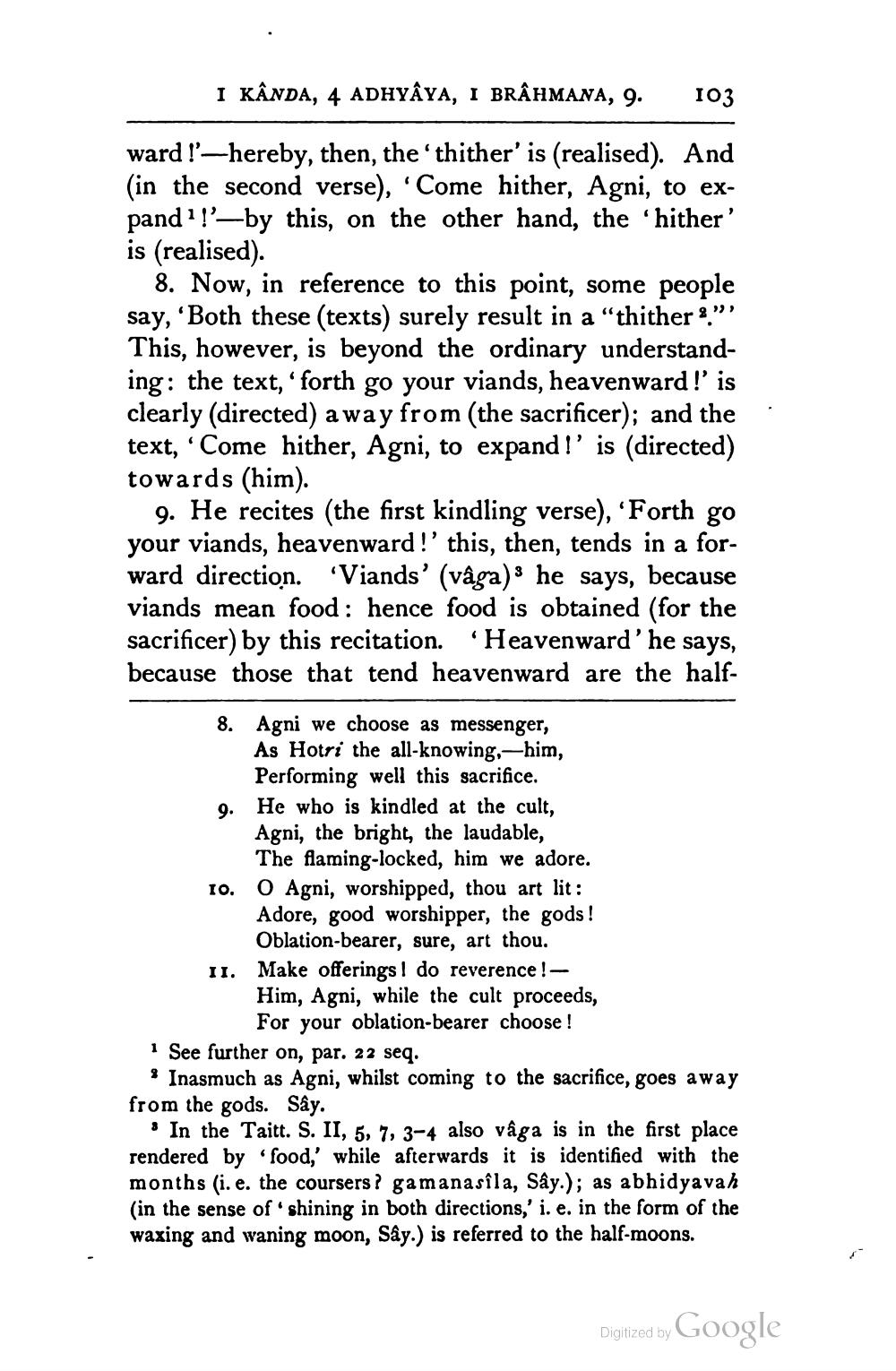________________
I KÂNDA, 4 ADHYÂYA, I BRÂHMANA, 9.
103
ward !'-hereby, then, the 'thither' is (realised). And (in the second verse), 'Come hither, Agni, to expand 1!'-by this, on the other hand, the 'hither' is (realised).
8. Now, in reference to this point, some people say, 'Both these (texts) surely result in a “thither." This, however, is beyond the ordinary understanding: the text, 'forth go your viands, heavenward !' is clearly (directed) away from the sacrificer); and the text, 'Come hither, Agni, to expand !' is (directed) towards (him).
9. He recites (the first kindling verse), 'Forth go your viands, heavenward !' this, then, tends in a forward direction. Viands' (vâga) he says, because viands mean food: hence food is obtained (for the sacrificer) by this recitation. 'Heavenward' he says, because those that tend heavenward are the half
8. Agni we choose as messenger,
As Hotri the all-knowing,-him, Performing well this sacrifice. He who is kindled at the cult, Agni, the bright, the laudable,
The flaming-locked, him we adore. 10. O Agni, worshipped, thou art lit:
Adore, good worshipper, the gods !
Oblation-bearer, sure, art thou. II. Make offerings I do reverence !
Him, Agni, while the cult proceeds,
For your oblation-bearer choose! See further on, par. 22 seq. * Inasmuch as Agni, whilst coming to the sacrifice, goes away from the gods. Sây.
* In the Taitt. S. II, 5, 7, 3-4 also vaga is in the first place rendered by "food,' while afterwards it is identified with the months (i.e. the coursers? gamanasîla, Sây.); as abhidyavah (in the sense of shining in both directions,' i. e. in the form of the waxing and waning moon, Sây.) is referred to the half-moons.
Digitized by Google




